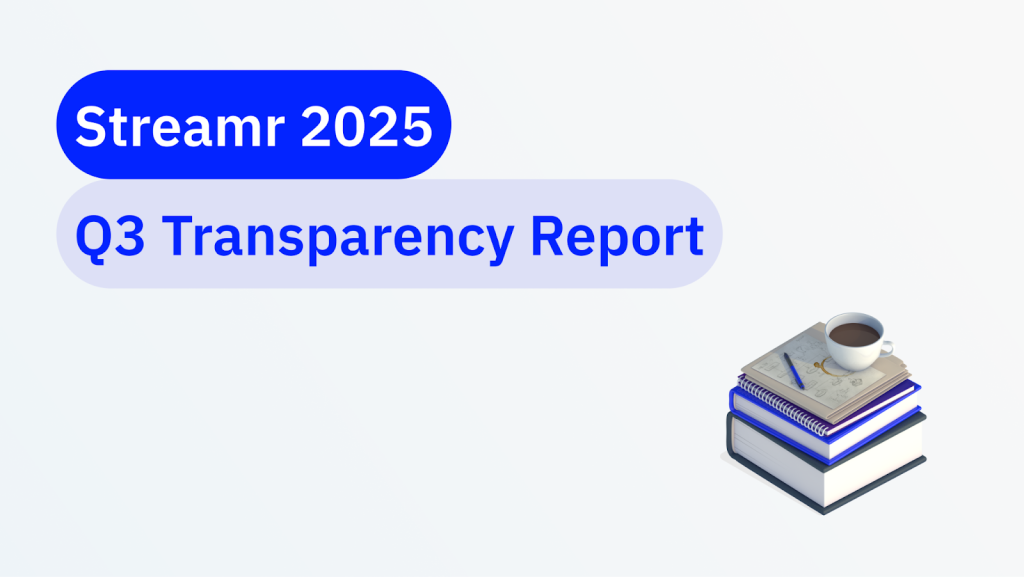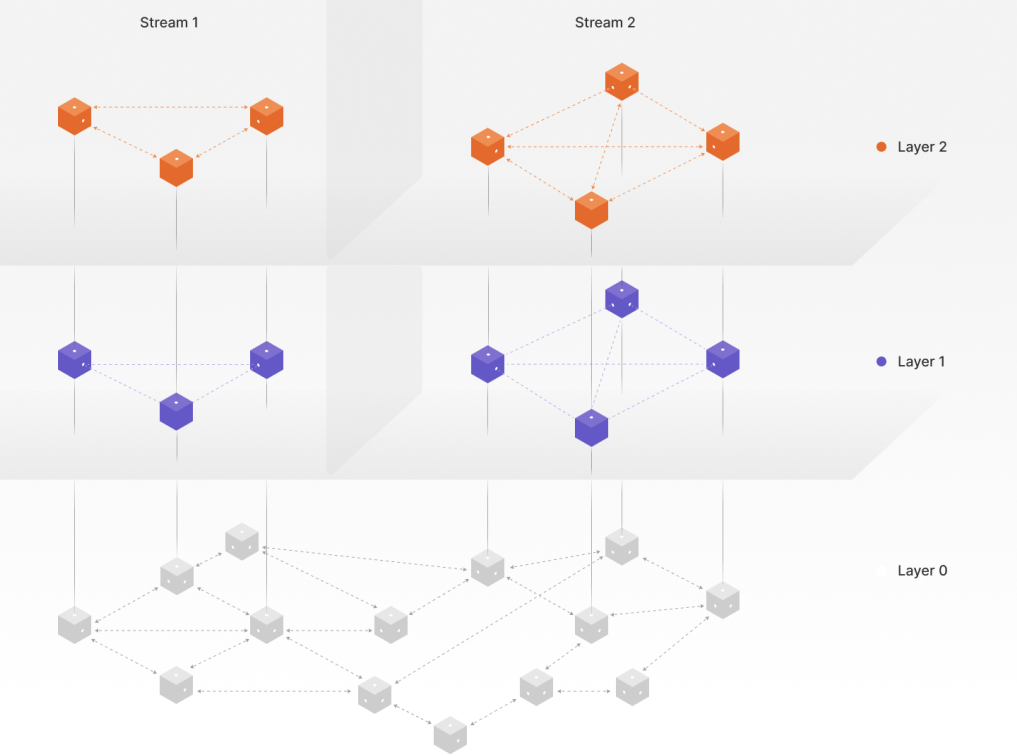The Data Act is one of the latest regulations introduced by the European Commission, aimed at addressing key challenges and unleashing the vast potential of data within the European Union. This groundbreaking regulation, together with others such as the Data Governance Act, GDPR, AI Act, and Digital Markets Act, represents a significant move toward a more controlled yet consumer-friendly digital ecosystem.
With these regulations, the big question for DePIN (Decentralized Physical Infrastructure Networks) and Web3 stakeholders is: how might they shape the future of DePIN and decentralized technologies in general?
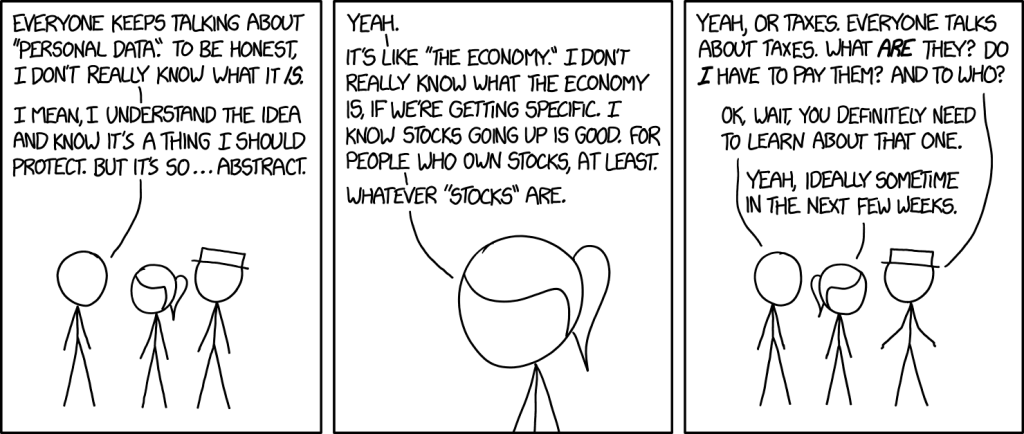
Table of Contents
To regulate or not to regulate Web3
In the broader Web3 space, discussions around regulation are often met with skepticism. Many in the community see regulatory bodies as obstacles to the principles of decentralization and freedom that underpin the space. However, rather than diving into the debate over whether regulation is inherently good or bad for Web3 development, this post takes a more constructive view of the upcoming Data Act. In fact, the Data Act and similar regulations may offer a path toward “innovation through regulation,” where a more restricted design space pushes the boundaries of creativity, ultimately leading to new and impactful solutions.
Before exploring the potential unlocked by the Data Act for DePIN, it’s essential to understand the broader aims of regulation and what the Data Act specifically seeks to accomplish. At its core, regulation exists to align private behavior with the public interest and to minimize the negative externalities that can emerge in the absence of market guardrails.
The value of data
About twenty years ago, Clive Humby famously declared that “data is the new oil.” Like oil, data holds immense value, but only when refined and put to meaningful use. If oil is monopolized or restricted in its flow, only a few benefit from its wealth; similarly, when data is locked in silos, inaccessible to its producers and lacking interoperable schemas or standardized APIs, its potential remains untapped. This restricted access stifles innovation, hinders the emergence of new data-driven businesses, and limits the equitable distribution of data’s economic value.

What’s in the Data Act?
The Data Act aims to correct this imbalance by breaking down silos and harmonizing rules for fair access to and usage of data across the European Union. Its scope includes connected products—such as IoT devices—and associated services available within the EU, regardless of where the data-holding entity (or “Data Holder”) is based. Data Act applies to “…all raw and pre-processed data generated from the use of a connected product (e.g. connected cars, health monitoring devices, smart-home devices) or a related services (i.e. anything that would make a connected product behave in a specific manner, such as an app to adjust the brightness of lights)”.
In other words, even non-EU original equipment manufacturers (OEMs) must comply with the Data Act to access EU markets, ensuring that all relevant players meet a consistent standard for data accessibility and transparency. This regulatory approach levels the playing field, compelling companies to adopt practices that promote data sharing and user empowerment, while also opening the door for new, data-driven innovations that benefit both businesses and individuals.
Can data silos be broken in practice?
Now, you might wonder: why would OEMs open up their data silos, even though users are technically the rightful owners of the data their devices produce? The answer lies in the significant penalties tied to non-compliance with the Data Act. By early 2025, EU member states will establish specific penalties for violations, but if these are anything similar to the fines under GDPR, companies may face fines up to EUR 20 million or 4% of their total worldwide turnover for failing to meet data-sharing obligations. This level of financial risk is likely to be a strong motivator for OEMs to comply, driving them to adopt the necessary frameworks and mechanisms to align with the Data Act’s requirements.
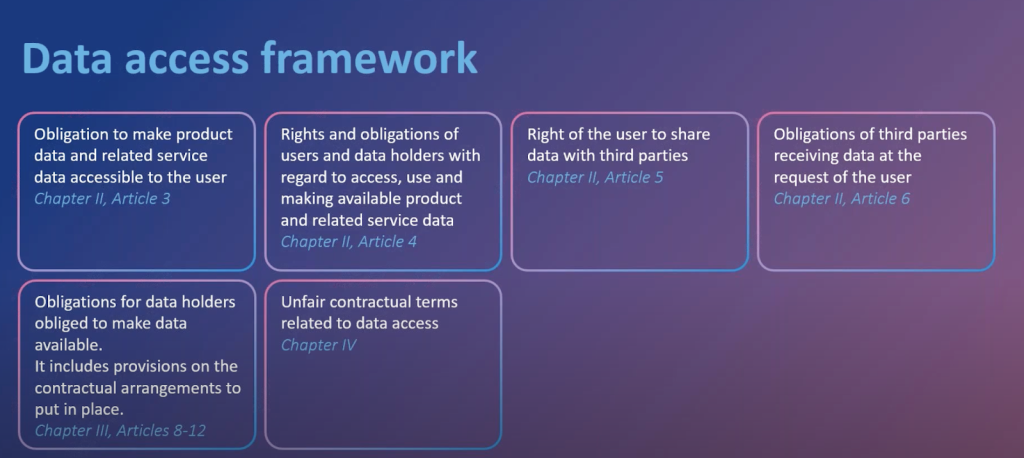
But what does this mean in practice? Consider the EU’s connected vehicle landscape, where there are currently over 56 million connected cars, a number expected to reach 115 million by 2030. Up until now, the data generated by your car’s use—whether operational or performance data—has largely been under the control of the OEM. Depending on the manufacturer, you might have limited access to your vehicle’s data, as is the case with some brands like Tesla, or no access at all.
Starting in September 2025, however, OEMs will be legally required to grant users access to the data produced by their vehicles. Failing to comply will mean facing regulatory penalties. This mandate is set to empower consumers with unprecedented access to the information generated by their devices, shifting control from manufacturers to users and potentially transforming industries that rely on vehicle data, from insurance to maintenance and beyond.
How can DePIN and Streamr help?
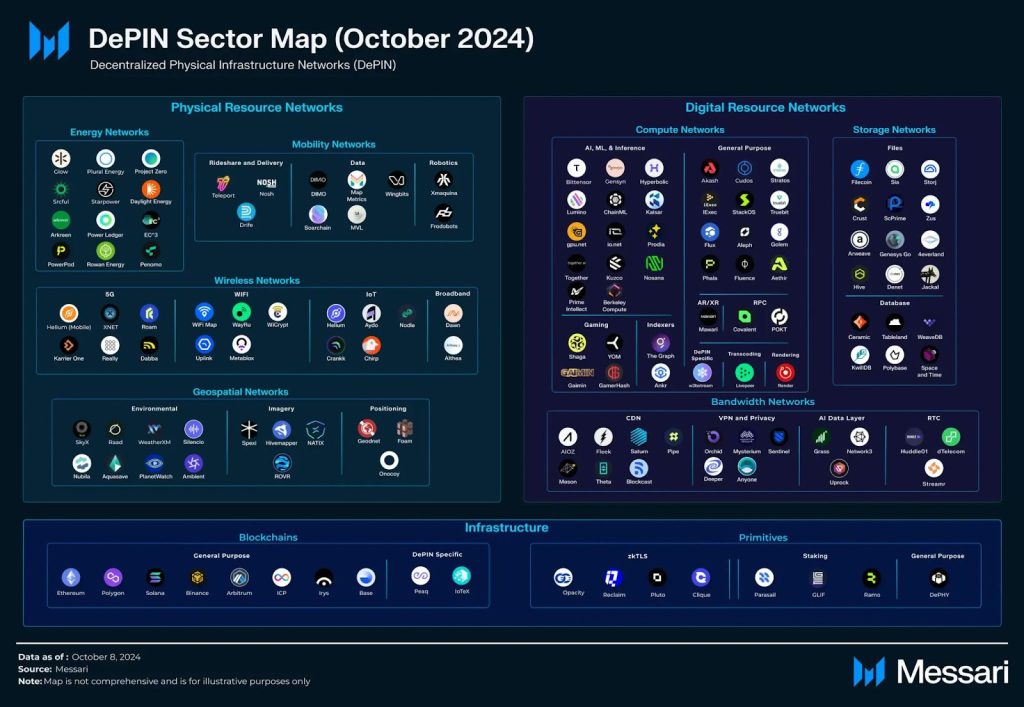
With data access becoming more equitable and accessible to producers, the demand for real-time, high-quality data is surging. Beyond traditional uses—such as employing vehicle data to tailor insurance policies—the exponential growth of AI and machine learning now requires continuous streams of diverse data to maintain accuracy and relevance.
Now that we’ve established how regulation is likely to make data more accessible and plentiful on the supply side, while demand for data continues to grow, the next question is: how can DePIN and projects like Streamr help bridge this gap between supply and demand? How can we efficiently connect this burgeoning supply of data with the growing demand in a way that is scalable, sustainable, and fair?
One of the critical challenges in connecting data supply with demand lies in the needs of data buyers: they aren’t typically interested in individual user data but rather in aggregated, large-scale data sets. Additionally, sharing data involves infrastructure costs for data holders, which can discourage data sharing on a large scale.
DePINs are cheaper than their centralized counterparts?
The value proposition within the DePIN space, compared to traditional centralized solutions, revolves around two key advantages: either delivering a similar level of quality—such as service reliability or user experience—at a lower cost, or providing superior quality at a comparable price. Many DePIN projects that focus on compute, networking, or storage solutions can achieve significantly lower costs than their centralized counterparts due to relying on crowdsourcing excess resources e.g. compute, networking or storage from individual users.
And in my opinion, the majority of the DePIN projects that offer computer, networking or storage solutions that are considerably cheaper than their centralized counterparts or they manage to scratch a very specific itch in relation to data sharing, data pooling and data monetization are bound to be well positioned to deliver value in the upcoming information surge.
At Streamr, we’ve been developing technologies that facilitate real-time data aggregation, enabling individual data streams from users to be pooled into larger datasets that hold greater appeal for buyers and end-users—such as AI and machine learning operators—while upholding individual privacy. In addition, we’ve introduced solutions like Data Unions and Rail, which provide cost-effective bookkeeping for aggregated and crowdsourced data, making it easier for contributors to organize, monetize, and manage their data collaboratively. These tools empower users to unlock the full value of their data in a secure, scalable manner, advancing a fairer and more accessible data economy.





